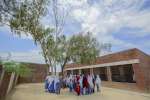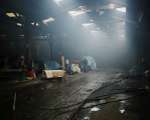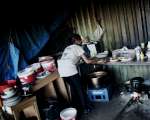- Text size
 |
|  |
|  |
| 
- Français
International community commits to refocus attention on Afghan refugee situation; calls for increased support for regional solutions
Press Releases, 8 October 2015
The international community today reaffirmed its commitment towards seeking lasting solutions for millions of Afghan refugees, in a bid to end one of the longest displacement situations in recorded history.
In a statement issued during UNHCR's 66th meeting of the Executive Committee, member states pledged support to the Islamic Republic of Afghanistan to create the conditions necessary for Afghan refugees to go back home and reintegrate in their country.
"To ignore Afghanistan would be dangerous, regardless of the urgency and scale of other new crises," said UN High Commissioner for Refugees Antonio Guterres. "Simply from the view of humanitarian response at a time of record new displacement elsewhere in the world, it is clear that gradually resolving old crises is absolutely crucial to avoid becoming entirely overwhelmed with new ones."
Some 2.6 million Afghans have been seeking refuge around the world, the vast majority in the two neighboring countries, the Islamic Republics of Pakistan and Iran. More than 1.5 million Afghan refugees are in the Islamic Republic of Pakistan while government figures show that some 950,000 Afghans are registered as refugees in the Islamic Republic of Iran. Many of them are either second or third generation refugees who have never lived in Afghanistan.
The High Commissioner acknowledged that the path ahead will be challenging, especially in light of the intensifying insecurity inside Afghanistan, most recently in Kunduz, that has displaced some 120,0000 people and the increasing number of Afghans making their way to Europe. UNHCR estimates that Afghans account for upto 14% of those who arrived by boat in Europe this year.
In the statement, member states acknowledged the need for a regional approach towards identifying and implementing lasting solutions for the Afghan refugees. Within this context, they reaffirmed support for the Solutions Strategy for Afghan Refugees to Support Voluntary Repatriation, Sustainable Reintegration and Assistance to Host Countries (SSAR), the main framework for solutions for Afghan refugees in the region.
The Afghan portfolio of projects under the SSAR was launched at the meeting. Over the past three years, the three governments together with UNHCR have co-led efforts to translate the strategy into tangible projects, to facilitate voluntary repatriation of Afghan refugees and, while in exile, provide them with the tools for their reintegration, upon return. The projects mainly target needs related to education and skills and livelihood development.
Almost 54,000 refugees have returned to Afghanistan so far this year, joining millions of others who have returned home since 2002. In Afghanistan, one in every five inhabitants is a former Afghan refugee. UNHCR estimates that between 100,000 and 150,000 registered Afghans could voluntarily return from the Pakistan and Islamic Republic of Iran during the course of 2016. The Afghan government has put in place a comprehensive plan targeting voluntary repatriation and reintegration.
Under the leadership of President Ashraf Ghani, the National Unity Government has repeatedly expressed a strong commitment towards welcoming Afghans home and established enhanced mechanisms for the coordination of return and reintegration activities in areas considered safe.
"International support is crucial in this process to lay the foundation for return inside Afghanistan, through the investment in the development in areas where people are able go back. At the same time, it is important to step up support to the two main host countries that for decades supported Afghans taking refuge on their soil," the High Commissioner said.
High Commissioner Guterres lauded Pakistan and the Islamic Republic of Iran for their generosity in hosting Afghans refugees for more than three decades. "These two countries have given Afghan refugees opportunities to acquire skills and education that allow many of them to make positive contributions to society while in exile," he added.
"But now, increased international solidarity and burden sharing are essential to offer hope and opportunities for Afghan refugees," he added. "This means giving them the tools needed to not only rebuild their own futures, but also ensuring that they are able to contribute to the reconstruction process of Afghanistan, once they return home."
Media contact
- Andreas Needham on +41 79 217 3140, needham@unhcr.org












































